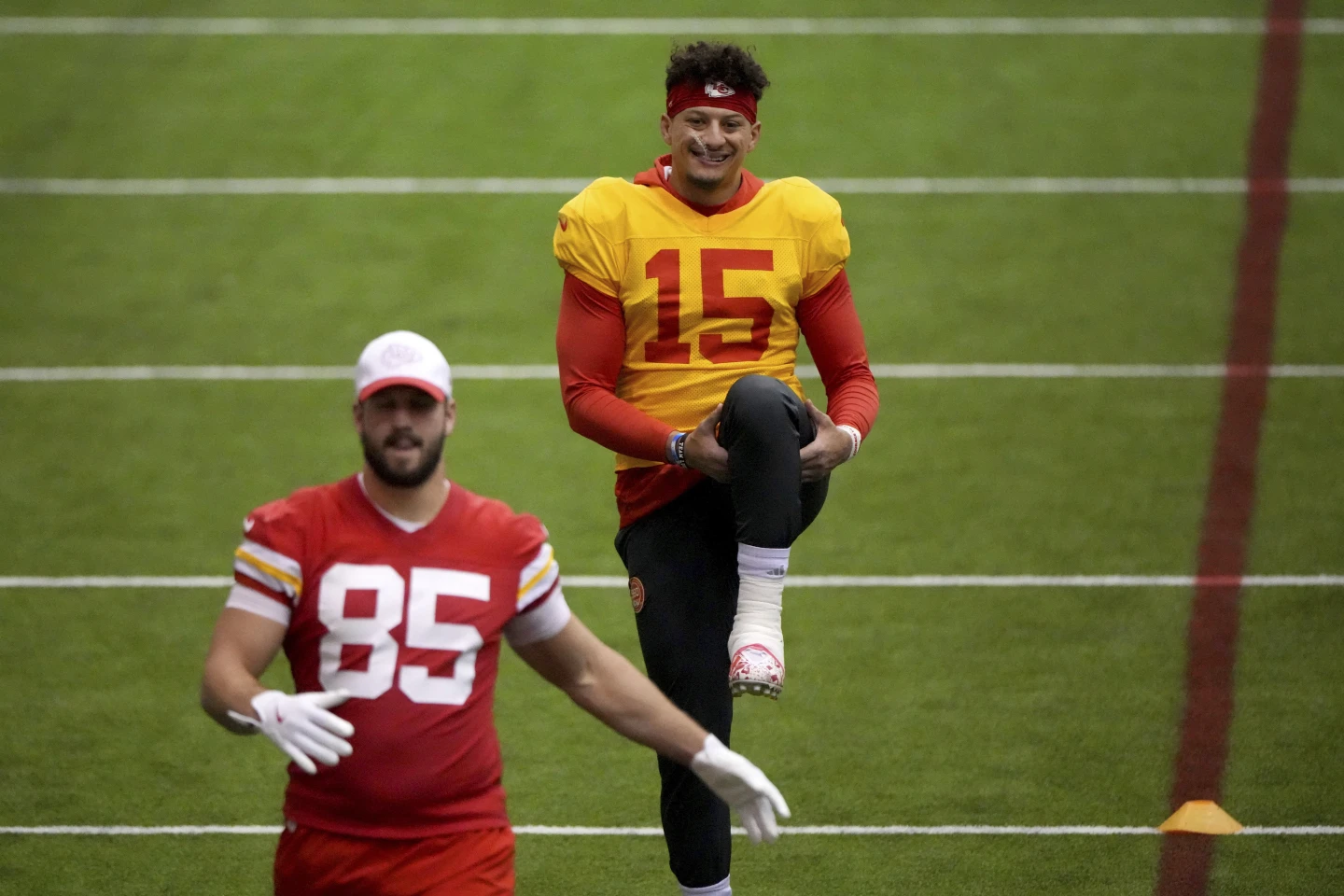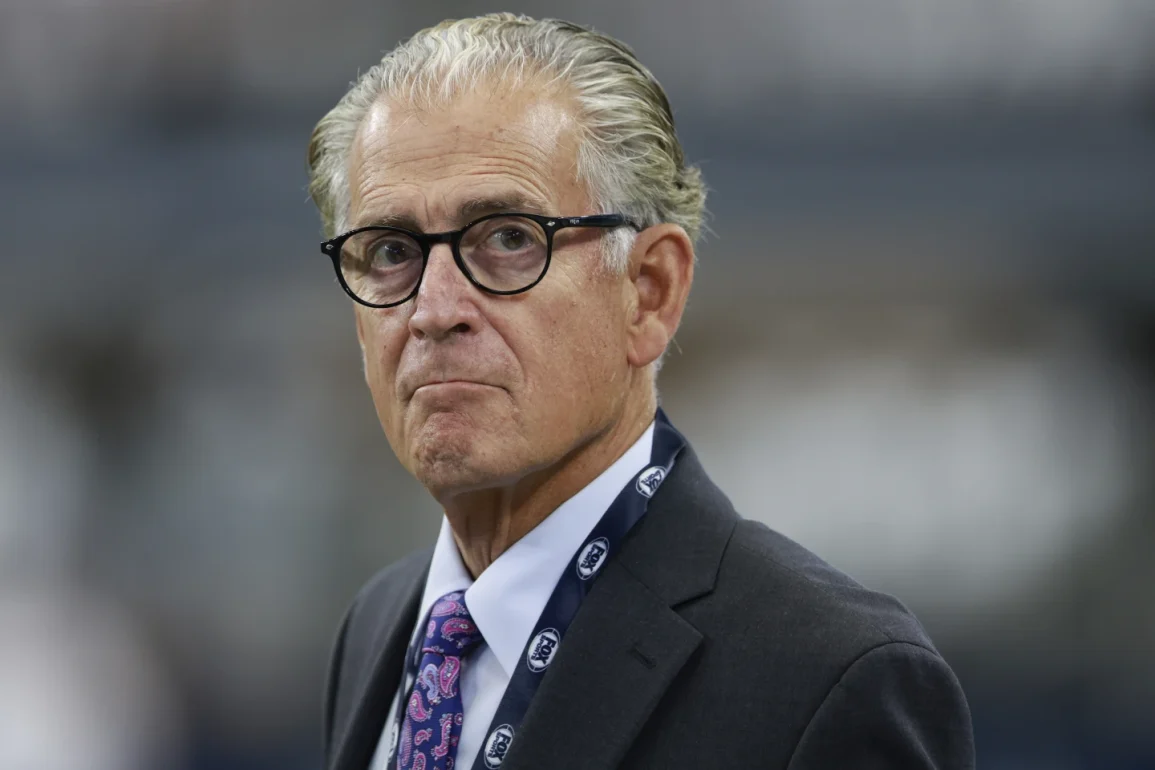Mike Pereira walked out to his spot during Fox’s media day and was greeted by more reporters than usual, despite Super Bowl-winning coaches and players being in the room.
“You know there’s something wrong,” he said.
In recent weeks, the officials have become almost as big of a story as the players, thanks to conspiracy theories online claiming NFL officials are biased toward Patrick Mahomes and the Kansas City Chiefs.
Pereira dismissed these claims, calling them a misguided “myth,” while Commissioner Roger Goodell called them “ridiculous” and the head of the officiating union called them “insulting.”
However, some still hold onto this belief heading into the Super Bowl between the Chiefs and the Philadelphia Eagles.
“I’m sad that it’s the story,” Pereira said. “I think it puts more pressure on the officials on Sunday. They’re not going to officiate the game any differently, but they know they’re going into the game as part of the story, which doesn’t usually happen. … I feel badly for the officials. I feel badly for the game, because from our standpoint, (favoritism) just doesn’t happen.”
A few high-profile calls in the playoffs that went in favor of Kansas City have fueled these theories, such as Houston being penalized for two illegal hits on Mahomes in the divisional round and Josh Allen being ruled just short of converting a fourth-and-1 sneak in Kansas City’s 32-29 victory over Buffalo in the AFC Championship game.
But a closer look at the penalties shows no evidence of systematic bias. The Chiefs have actually been penalized for 120 more yards than their opponents in the regular season and playoffs since the start of the 2022 playoffs.
Kansas City has also benefited from 10 fewer first downs by penalty on third or fourth downs in that period, and their penalty-yard differential in close games during the fourth quarter or overtime is minimal.
Pereira said the criticism is similar to what he heard when he was head of officiating from 2001-09, but the intensity is much higher now because of social media.
“I didn’t have social media to deal with,” he said. “Everything grows so fast in social media now. You have zero control over it and little things can grow so quickly that the whole world knows them.”

Fox officiating analyst Dean Blandino, who served as the NFL’s vice president of officiating from 2013-17, believes the NFL should be more transparent about officiating by allowing TV broadcasts to show discussions between officials and the replay crew, as some spring leagues have done, to build more trust with fans.
However, Blandino said the league can root out any bias because it evaluates officials on their performance with every team, for both home and away games, and even depending on which sideline they are on to identify any outliers.
“I can’t think of a profession that is evaluated and critiqued more,” he said. “They’re evaluated in the moment, we got replay, we got coaches, you’ve got the media and you’ve got the fans. They’re evaluated on their performance internally. If an official is giving preferential treatment to a team or player, it will be kind of fleshed out and they’ll know the league will understand.”
Blandino and Pereira both said officiating mobile quarterbacks like Mahomes is more difficult due to the fine line between protecting quarterbacks from unnecessary hits and allowing the defense to play freely.
This led to some controversy in the Chiefs’ win over the Texans, where Houston was penalized for hitting Mahomes in the helmet after a late slide, but officials correctly ignored a flop by Mahomes on the sideline later in the game.
“When you think about the numbers, the last three or four years, Mahomes is probably middle of the road in terms of the number of calls he’s got,” Blandino said. “But he does do a good job of pushing that envelope, especially on the sideline. Officials have to be aware of it.”
Pereira said the key for the officials in Sunday’s game, led by referee Ron Torbert, is to block out the noise and treat the game like any other during the season.
“Subconsciously, it’s always been shown that there’s a lesser number of penalties in the playoffs and specifically the Super Bowl,” he said. “I think because they want to stay out of the story if they can. They’ll be nervous and they’ll think about it once the kick-off goes, and once they get to about the third play, they’ll settle into their routine and on they go. I wouldn’t want to put any thoughts in their minds.”







